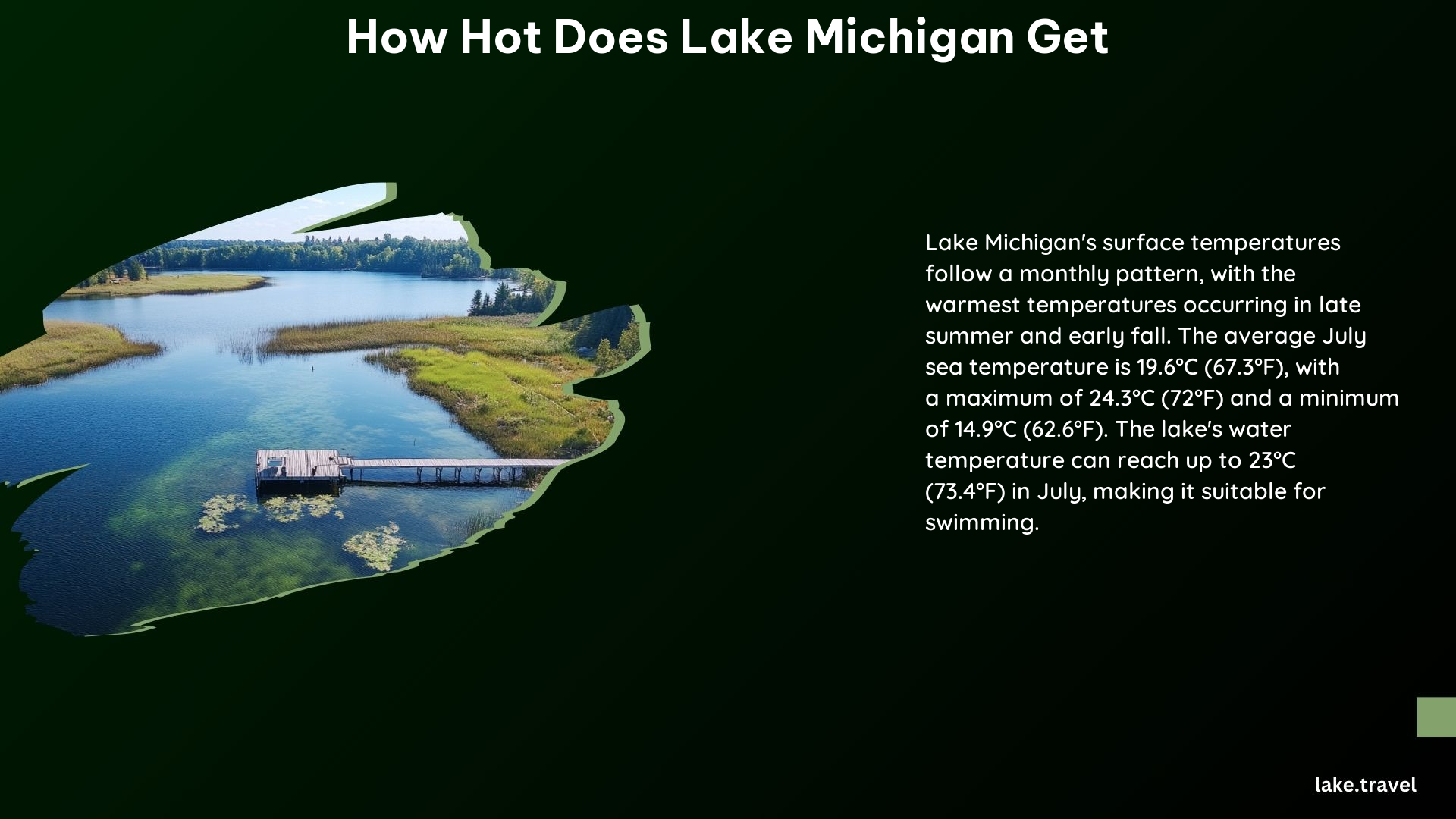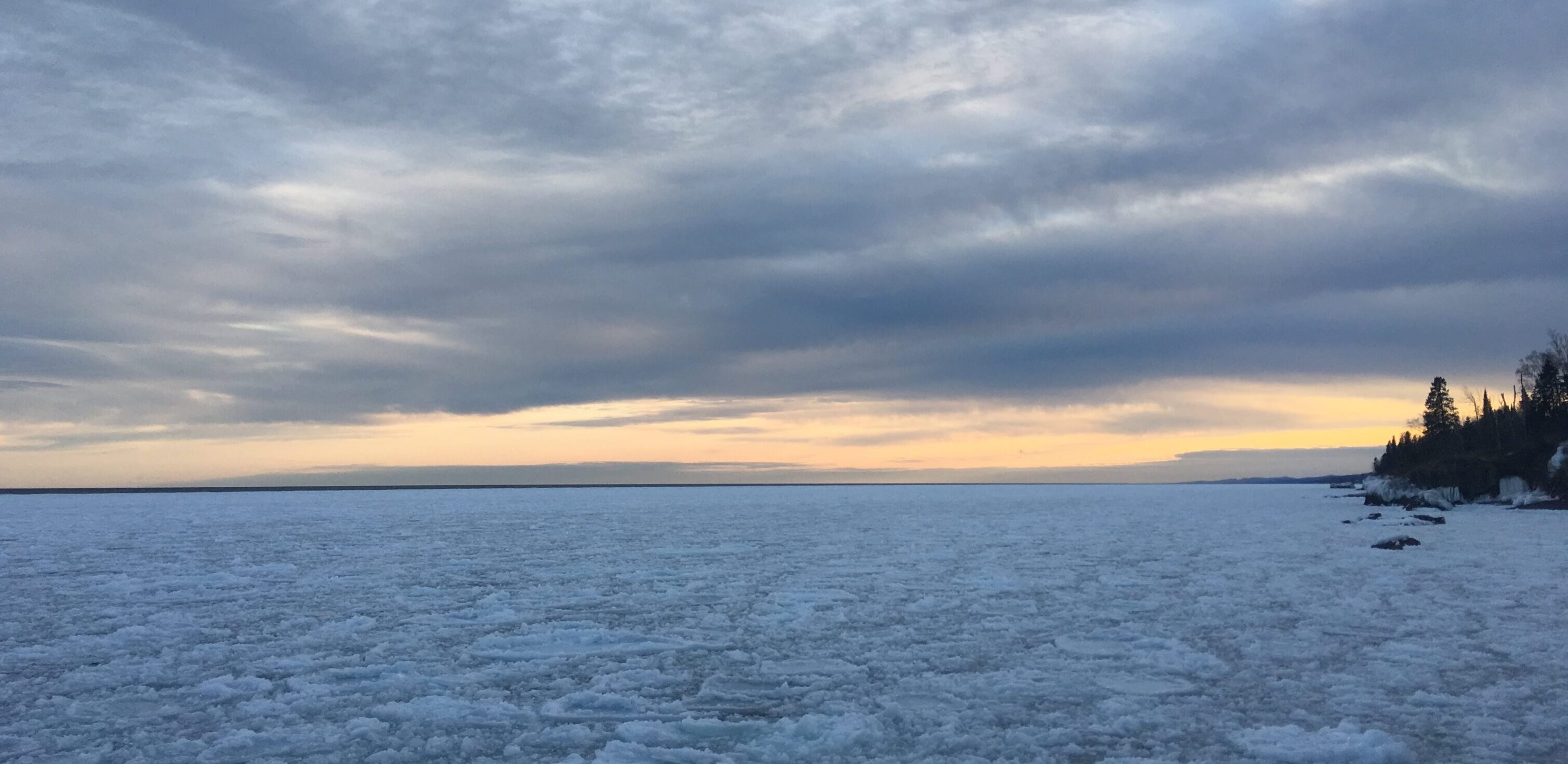Does Lake Michigan freeze over? This question has sparked curiosity among weather enthusiasts, scientists, and tourists alike. Imagine standing on the shore of one of the largest freshwater lakes in the world, watching as massive ice formations take shape. It's like nature's own winter wonderland! But does this massive lake truly freeze completely, or is it just a partial phenomenon? Let's dive into the icy details and uncover the truth behind Lake Michigan's winter transformation.
As someone who loves exploring the mysteries of the natural world, I find Lake Michigan's seasonal changes utterly fascinating. The lake's behavior during winter months isn't as straightforward as you might think. While it does freeze in certain areas, the process is far more complex than simply turning into a giant ice rink. Stick around, and I'll break it down for you in a way that's both informative and entertaining.
Before we get into the nitty-gritty of whether Lake Michigan freezes over, let's set the stage. This lake isn't just any body of water—it's the third-largest of the Great Lakes by volume and the only one entirely within the United States. Its massive size and unique geography play a crucial role in determining how and where ice forms during the colder months. So, grab your winter coat and let's explore the frozen side of Lake Michigan!
- Peeping Joi A Deep Dive Into The World Of Joi Content
- Fox Crash Game The Ultimate Guide To Adventure And Fun
Understanding Lake Michigan's Winter Behavior
When people ask, "Does Lake Michigan freeze over?" what they're really asking is whether the entire lake turns into a solid block of ice. The answer, my friends, is a resounding "Not exactly." While parts of the lake do freeze during particularly cold winters, the sheer size and depth of Lake Michigan make a complete freeze unlikely. According to the National Oceanic and Atmospheric Administration (NOAA), only about 50% of the lake freezes on average during harsh winters.
Why Doesn't Lake Michigan Freeze Completely?
There are several factors at play here. First, Lake Michigan's massive size means it holds a lot of heat, which takes time to dissipate. Second, the constant movement of water due to wind and currents prevents ice from forming uniformly across the surface. Lastly, the lake's depth plays a significant role. Deeper areas tend to remain ice-free even when shallower parts freeze over.
- Lake Michigan holds an estimated 1,180 cubic miles of water
- Surface area spans approximately 22,404 square miles
- Average depth is around 279 feet
- Maximum depth reaches 923 feet
Historical Freezing Patterns
Let's take a trip back in time to understand how Lake Michigan's freezing patterns have evolved over the years. Records from the early 1900s show that the lake occasionally experienced near-total freezes during exceptionally cold winters. However, with climate change affecting global temperatures, these events have become less frequent. In recent decades, only a handful of winters have seen significant ice coverage exceeding 90%.
- Couple Christmas Card Photos The Ultimate Guide To Creating Heartwarming Holiday Memories
- Whatrsquos The Deal With Smothers Theater A Deep Dive Into The World Of Comedy And Drama
Notable Freezing Events
Some winters stand out in Lake Michigan's freezing history:
- 1979: One of the coldest winters on record, with ice coverage reaching 94%
- 2014: Polar vortex brought ice coverage to 93.29%
- 2019: Another polar vortex led to 70.3% ice coverage
These events remind us that while complete freezes are rare, Lake Michigan is capable of delivering some impressive icy displays when conditions align just right.
Factors Influencing Ice Formation
Now that we know Lake Michigan doesn't freeze over entirely, let's explore the factors that influence where and how ice forms. Temperature, wind, and water currents all play crucial roles in this process. For instance, calm winds allow ice to form more easily, while strong winds can break up existing ice and prevent new formations.
Key Factors at Play
- Air temperature below 32°F for extended periods
- Calm wind conditions
- Shallow water areas near shorelines
- Wind direction and speed
Scientists monitor these factors closely to predict ice coverage and assess its impact on local ecosystems and human activities.
The Impact of Climate Change
Climate change has become a significant player in Lake Michigan's freezing story. Rising temperatures have led to shorter and less severe winters, reducing the likelihood of extensive ice coverage. According to a study published in the Journal of Climate, Great Lakes ice cover has decreased by about 71% since the 1970s.
What Does This Mean for Lake Michigan?
Less ice coverage can have both positive and negative effects. On the plus side, it may extend the shipping season and reduce ice-related damage to structures. However, it also poses challenges for local wildlife and could affect water levels over time. As we continue to monitor these changes, understanding their implications becomes increasingly important.
Ice Formation Process
So, how exactly does ice form on Lake Michigan? The process begins when surface water temperatures drop below freezing. As ice crystals start to form, they create a thin layer that gradually thickens under the right conditions. This layer can take various forms, from frazil ice (small ice crystals) to pancake ice (circular pieces of ice) and eventually solid ice sheets.
Types of Ice You Might See
- Frazil ice: Small, needle-like ice crystals
- Pancake ice: Circular, flat pieces of ice
- Gray ice: Newly formed, thin ice sheets
- Black ice: Thicker, clear ice
Each type of ice tells a story about the lake's current conditions and the forces shaping its winter landscape.
Recreational Opportunities on Frozen Lake Michigan
Believe it or not, frozen sections of Lake Michigan offer some incredible recreational opportunities. Ice fishing, snowmobiling, and even ice climbing are popular activities for those brave enough to venture onto the ice. However, safety should always be your top priority. Never venture onto the ice unless it's been deemed safe by local authorities.
Tips for Staying Safe on the Ice
- Check ice thickness regularly
- Avoid areas with moving water
- Always go with a buddy
- Carry emergency gear
With proper precautions, you can enjoy the unique beauty of Lake Michigan's winter wonderland while staying safe.
Environmental Impacts of Ice Coverage
Ice coverage plays a vital role in maintaining the health of Lake Michigan's ecosystem. During winter, ice acts as an insulating layer, protecting aquatic life from extreme cold. It also helps regulate water temperature and prevents excessive evaporation. However, reduced ice coverage due to climate change could disrupt these delicate balances.
How Ice Affects Wildlife
Many species rely on ice for survival. For example, some fish spawn under the ice, while others use it as protection from predators. Birds like the common loon depend on open water for feeding, so ice coverage can force them to migrate further south. Understanding these relationships helps us appreciate the importance of preserving Lake Michigan's natural cycles.
Scientific Studies and Predictions
Researchers are continually studying Lake Michigan's freezing patterns to better understand their causes and effects. Advanced modeling techniques and satellite imagery allow scientists to track ice coverage with remarkable accuracy. These studies provide valuable insights into how climate change might affect the lake in the future.
What Can We Expect?
While it's difficult to predict exact outcomes, most models suggest that ice coverage will continue to decrease in the coming decades. This trend could lead to changes in water levels, increased evaporation rates, and shifts in local ecosystems. By staying informed and taking action to mitigate climate change, we can help preserve Lake Michigan's beauty for future generations.
Conclusion: Does Lake Michigan Freeze Over?
So, does Lake Michigan freeze over? The answer is a mix of yes and no. While parts of the lake do freeze during cold winters, a complete freeze is extremely rare due to the lake's massive size, depth, and unique geography. Understanding these factors helps us appreciate the complexity of nature's processes and the importance of preserving our natural resources.
I encourage you to explore Lake Michigan's winter wonders for yourself, but always prioritize safety. If you enjoyed this article, please share it with your friends and family. And don't forget to check out our other articles on all things Great Lakes! Together, we can continue learning and protecting these incredible bodies of water.
Table of Contents
- Understanding Lake Michigan's Winter Behavior
- Historical Freezing Patterns
- Factors Influencing Ice Formation
- The Impact of Climate Change
- Ice Formation Process
- Recreational Opportunities on Frozen Lake Michigan
- Environmental Impacts of Ice Coverage
- Scientific Studies and Predictions
- Conclusion
There you have it, folks—a deep dive into the fascinating world of Lake Michigan's winter behavior. Whether you're a science enthusiast, a nature lover, or just someone curious about the great outdoors, I hope this article has shed some light on the icy mysteries of one of America's most beautiful lakes. Keep exploring, stay curious, and remember to respect the power of nature!
- Smile Donkey The Unstoppable Force Of Happiness
- Matlock The Picture Cast A Deep Dive Into The Iconic Tv Show And Its Stars


